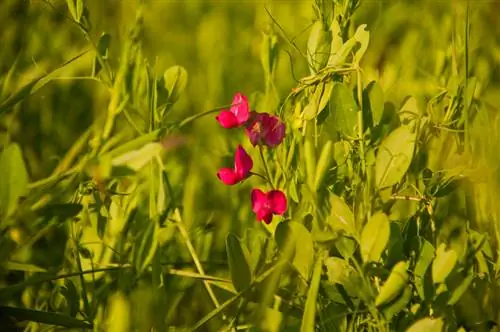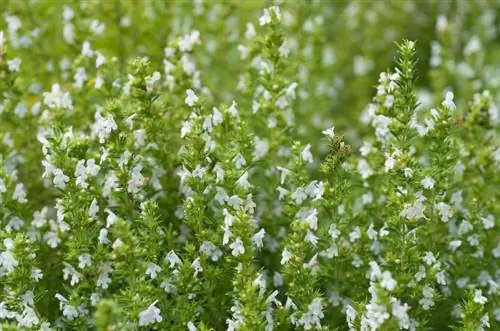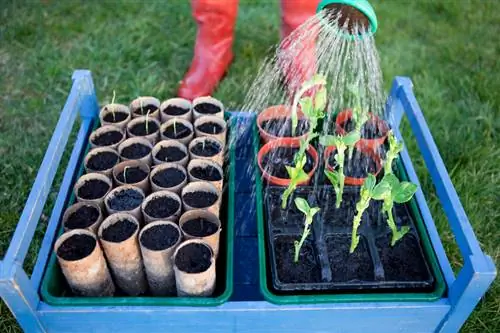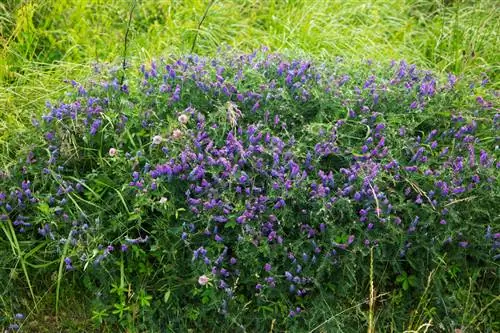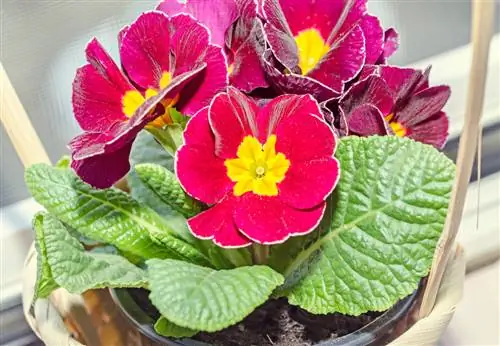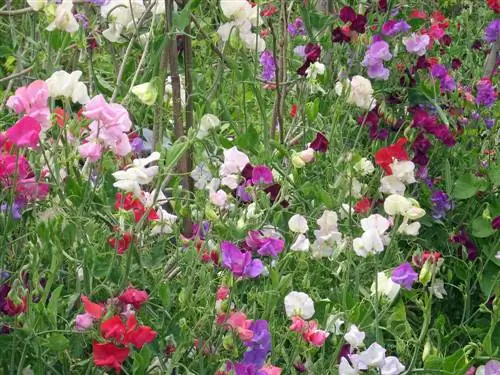- Author admin leonars@hobbygardeners.com.
- Public 2023-12-16 16:46.
- Last modified 2025-01-23 11:20.
Veches bloom in an incredible array of colors, ranging from delicate purple to dark red, creamy white to bright red. With proper care, the sweet pea tirelessly opens new flowers during the summer months, whose wonderful scent wafts delicately through the garden.
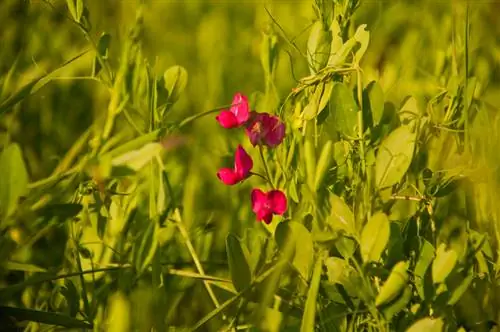
How to care for sweet peas in the garden?
To properly care for sweet peas, they should be watered sufficiently, fertilized weekly and withered plant parts removed. Pests and diseases can be treated with ecological measures. Perennial sweet peas are hardy.
Pouring
Vetches react quite sensitively to drought because the plant evaporates a lot of moisture due to the large leaf mass. Therefore, water sufficiently on hot days so that the climbing-loving plants thrive optimally.
Fertilize
The flower and leaf formation demands a lot from the vetches. For this reason, fertilize every week with a special fertilizer for flowering plants (€6.00 on Amazon).
Cutting sweet peas
Remove all wilted plant parts regularly. Even dead flowers should be cleaned out at least weekly. The vetch does not put its energy into producing seeds, but tirelessly produces new flowers. If necessary, you can also make a topiary cut and cut a sweet pea that is growing too high.
Perennial sweet peas, which actually belong to the pea family, are cut close to the ground in early spring or autumn.
Plant diseases and pests
Veches are relatively robust and are rarely attacked by the following diseases or pests:.
- Aphids: These can be easily combated with nettle decoction and other ecological measures.
- Mildew: Treat preventively with plant strengtheners. Remove all severely infected shoots.
- Root rot: This threatens with waterlogging, which is promoted by heavily compacted soils. Before planting, ensure that the soil is naturally loosened or add a drainage layer of gravel and coarse sand to the planting hole.
Wintering
Annual sweet peas die in autumn and are re-sown or planted next spring. The perennial sweet peas are hardy and only require special winter protection in very harsh regions.
Tip
Mulch vetches regularly with grass clippings, leaves or bark mulch. The withered plant parts of the Vicia are also excellent because they provide the hungry plant with additional nutrients.

